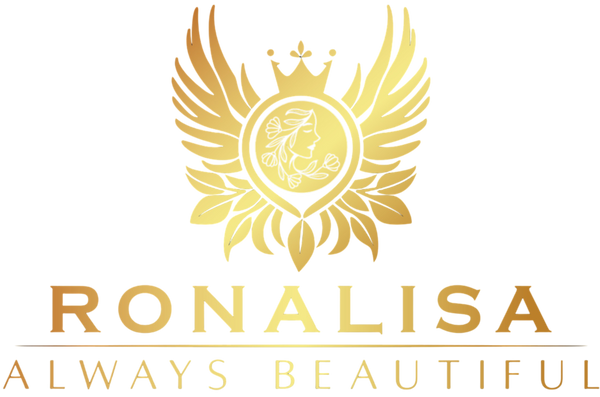
Which Vitamin Is Good for Hair? Complete Guide to Healthy Hair Nutrients
Share
Everyone dreams of having shiny, thick, and healthy hair. But many people struggle with hair fall, slow growth, or dull strands. While external products like shampoos and oils are important, what you feed your body is just as essential. Vitamins and minerals play a key role in hair health.
If you’ve ever asked, “Which vitamin is good for hair?”, this guide will give you a complete answer. You’ll learn which nutrients your hair needs, the best food sources, and how to combine them with the right hair care products like natural hair shampoo, best shampoo for men, and hair growth shampoo.
Why Do Vitamins Matter for Hair?
Your hair grows from follicles under the scalp. These follicles need nutrition to produce strong, healthy strands. Vitamins help in:
-
Strengthening hair roots.
-
Preventing breakage and split ends.
-
Supporting faster growth.
-
Reducing hair fall.
-
Keeping the scalp nourished and hydrated.
Without proper nutrition, no shampoo or conditioner can give long-lasting results. That’s why learning which vitamins are good for hair is the first step.
Top Vitamins for Healthy Hair
Vitamin A
-
Role: Produces sebum (natural oil) to keep the scalp moisturized.
-
Deficiency Signs: Dry scalp, brittle hair.
-
Food Sources: Carrots, spinach, sweet potatoes, fish.
Vitamin B Complex (Biotin, B12, Niacin)
-
Biotin (B7): Supports keratin production and strengthens strands.
-
B12: Helps red blood cells carry oxygen to hair follicles.
-
Niacin (B3): Improves scalp blood circulation.
-
Food Sources: Eggs, milk, whole grains, almonds.
Vitamin C
-
Role: Builds collagen, which keeps hair strong and prevents breakage.
-
Also Helps: Absorbs iron, another key nutrient for hair.
-
Food Sources: Oranges, strawberries, bell peppers.
Vitamin D
-
Role: Stimulates new hair follicles.
-
Deficiency: Linked to alopecia (bald patches).
-
Food Sources: Sunlight, mushrooms, salmon, fortified dairy.
Vitamin E
-
Role: Boosts blood flow in the scalp and reduces oxidative stress.
-
Food Sources: Nuts, seeds, avocados, olive oil.
Best Vitamins for Hair
|
Vitamin |
Role in Hair Health |
Food Sources |
|
Vitamin A |
Produces scalp oils, prevents dryness |
Carrots, spinach, fish |
|
Biotin (B7) |
Strengthens hair, supports keratin |
Eggs, nuts, whole grains |
|
Vitamin B12 |
Supplies oxygen to follicles |
Milk, chicken, fish |
|
Vitamin C |
Builds collagen, absorbs iron |
Citrus fruits, peppers |
|
Vitamin D |
Stimulates new growth |
Sunlight, salmon, mushrooms |
|
Vitamin E |
Improves circulation, adds shine |
Nuts, seeds, avocados |
Important Minerals for Hair Growth
Along with vitamins, minerals are equally important.
-
Iron: Prevents hair shedding.
-
Zinc: Maintains the scalp’s oil glands and prevents dandruff.
-
Magnesium: Reduces stress-related hair loss.
- Selenium: Protects scalp cells from damage.
Which Vitamin Works Best for Different Hair Problems?
|
Hair Problem |
Best Vitamin/Mineral |
Care Tip |
|
Dry & brittle hair |
Vitamin E, Omega-3 |
Use oils + natural hair shampoo to lock in moisture. |
|
Thinning hair |
Biotin, B12 |
Add eggs and whole grains to your diet, and pair them with a hair growth shampoo. |
|
Slow hair growth |
Vitamin D, Zinc |
Get sunlight daily + eat salmon, massage scalp regularly. |
|
Hair loss in men |
Vitamin D + Iron |
Combine nutrients with the best shampoo for men to strengthen follicles. |
|
Women’s hair health |
Vitamin C + Biotin |
Include citrus fruits + nuts, use natural hair shampoo for shine. |
Foods That Provide Hair-Friendly Vitamins
Best Food Sources
-
Vitamin A: Carrots, sweet potatoes, spinach.
-
Vitamin B: Eggs, milk, almonds, oats.
-
Vitamin C: Citrus fruits, strawberries, guava.
-
Vitamin D: Salmon, fortified cereals, sunlight.
-
Vitamin E: Avocados, sunflower seeds, peanuts.
Hair-Healthy Diet Plan
|
Meal |
Food Choices |
Nutrients Provided |
|
Breakfast |
Boiled eggs + orange juice |
Biotin, B12, Vitamin C |
|
Lunch |
Spinach salad with nuts and olive oil |
Vitamin A, E, and Iron |
|
Evening Snack |
Yogurt with berries |
B vitamins, antioxidants |
|
Dinner |
Grilled salmon + steamed vegetables |
Vitamin D, Omega-3, Magnesium |
Signs of Vitamin Deficiency in Hair
-
Dull, lifeless hair.
-
Excessive shedding.
-
Dry, itchy scalp.
-
Hair breakage and split ends.
-
Bald spots or thinning patches.
If you notice these, your diet may lack key vitamins.
Extra Hair Care Tips Beyond Vitamins
Good nutrition must be combined with smart external care:
-
Wash your hair with a natural hair shampoo to avoid harsh chemicals.
-
Men should use the best shampoo for men to deal with scalp oil and sweat.
-
If you face hair thinning, switch to a hair growth shampoo to encourage regrowth.
-
Avoid washing with hot water.
-
Minimize heat styling tools.
-
Stay hydrated.
Conclusion
So, which vitamin is good for hair? The truth is that no single vitamin works alone. Your hair needs a mix of Biotin, Vitamin C, Vitamin D, and Vitamin E, along with minerals like zinc and iron, to stay healthy.
But diet alone isn’t enough. Pairing vitamins with external care makes the difference. Choose a natural hair shampoo for gentle cleansing, the best shampoo for men for male scalp needs, or a hair growth shampoo if you face hair fall.
When you combine the right nutrition with the right care, your hair will stay strong, shiny, and full of life.
